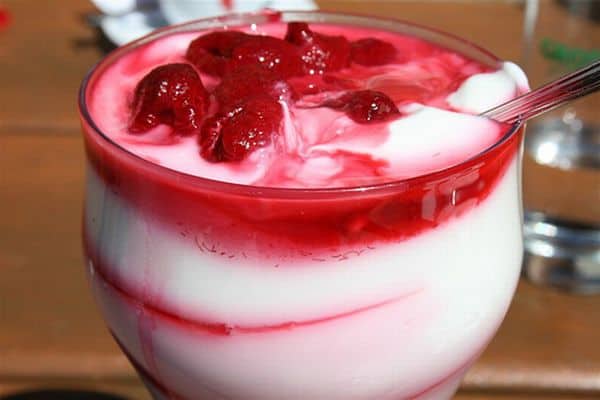The word Probiotic means ‘for life’. Most people think that all bacteria are harmful for life. Thankfully, this is not always the case. Many bacterial lesions are helpful in stopping the growth of other harmful bacteria and also help in improving the digestion. Probiotics are the beneficial forms of gut bacteria which help the body in improving digestion and also provide relief from major diseases. Other medicinal uses of probiotic bacteria are in treatment of diarrhea, prevention and treatment of vaginal disease, treatment of irritable bowel syndrome, reduction in bladder cancer recurrences, faster healing of intestinal infections, prevention and treatment of eczema in children, reduction in occurrence and severity of flu and cold etc.
Probiotics also help in improving the overall health of an individual. There is a growing awareness about the benefits of probiotics among the common people. The probiotic consumption can be said to be a health diet supplement whose demand is increasing exponentially worldwide. Because of the increase in popularity and demand of probiotic food, the production and availability of food have increased. They can be easily incorporated in your regular diet and hence provide a valuable addition to the nutrition without any increase in costs. Here is a list of ten probiotic foods that can add value and nutrition to your diet. Check it out.
1.Curd/yogurt
live cultured yogurt provides the best source of probiotic food. It is even better when homemade. The goat’s milk and cheese have high probiotic content like bifudus, thermophillus, acidophilus and tehrmophiluus. Always be sure to read the ingredients list as all yogurts are not made by similar processes. You can find many popular yogurt brands with corn syrup containing high fructose, artificial flavors and sweetners etc which are not good for health. Curd provides a healthy digestive system along with enhanced immunity.
2. Kefir
A Russian favorite, it is quite similar to yogurt. Kefir is produced by combining fermented grains and goat milk. Kefir is rich in antioxidants and also contains high amounts of lactobacilli and bifidus bactreia. Kefir contains high amount of friendly bacteria that kill the pathogens in large intestine.
3. Sauerkraut
Fermented cabbages as well as other vegetables are used for the production of sauerkraut. It contains healthy live cultures along with vitamins A, B, E and C and is also used as an allergy reducer. Sauerkraut consumption makes the digestive system acidic, which in turn prevents the growth of harmful bacteria like clostridium botulinum that produce large amounts of toxins that are highly damaging to the body.
4. Dark Chocolate
Dark chocolates provide a good source of probiotic ingredients as they contain four times increased value of probiotcs than any other dairy product. But since chocolate has high amount of sugars and other ingredients, it should be consumed in moderation.
5. Micro-algae
They are derived from sea and ocean growths such as chorella, blue green algae, spirulina etc. They provide a good source of energy and act as energy boosters along with providing lactobacilllus and bifido bacteria for keeping the digestive tract fit and healthy.
6. Tempeh
It is rich in probiotic grains and is made from soybeans. Tempeh is considered an ideal substitute for tofu and meat. It can be consumed with salads or in a baked form. In addition to having low amount of sodium, it has high amounts of vitamin B12 and calcium. The high fiber content of soybeans in tempeh helps to reduce sugar level in a diabetic person.
7. The Miso Soup
The miso soup is being consumed since ages in countries like Japan and China and now it is consumed and liked in other parts of the world as well. The miso soup has many health benefits like strengthening of immune system, protection from radiation rays of the sun, reducing risk of cancer, prevention of aging, preservation of beautiful skin, reduction of complaints during menopause etc.
8. Kimchi
A well-known Korean recipe, kimchi, is now a globally liked and preferred probiotic food. Kimchi is prepared using cabbage, red pepper, garlic and some salt. Flavors of ginger and scallions are also added by some people. Kimchi is great source of probitotics, calcium, beta carotene, iron, vitamin B1, B2, A and C. Kimchi reduces hyper-acidity in meat eaters and has antibiotic effects that help in preventing growth of other harmful bacteria in the intestinal gut. It also reduces indigestion problems and helps to reduce your hunger levels as well, thereby preventing you from weight gain.
9. The Kombucha Tea
The kombucha fermented tea (made by the fermentation of sugar, tea and a live starter) is a combination of various yeasts and bacteria and contains lots of healthy gut microorganisms. It promotes and preserves the overall health of the body along with loss in weight and increase in energy levels of the body. It gives you a good skin and hair as well as a healthy a digestive system.
10. Sour pickles
Vinegar is not used in making of these sour pickles. The sea water and salts are used along with addition of some aromatics in the manufacturing process. The pickles promote the digestive benefits for health as they promote the growth of friendly microorganisms and inhibit the growth of disadvantageous ones. The nutritious power comes from vegetables which are preserved in these pickles.
Use of fresh and clean ingredients gives more health benefits to these organics foods, which can be availed easily without involving much costs. They also do not disturb your taste buds and food composition and provide their benefits if you incorporate them in your diet in moderate amounts. You can also consult your physician as to which probiotic supplement or food will ideally suit your body and should be consumed in what ratio and amount.




